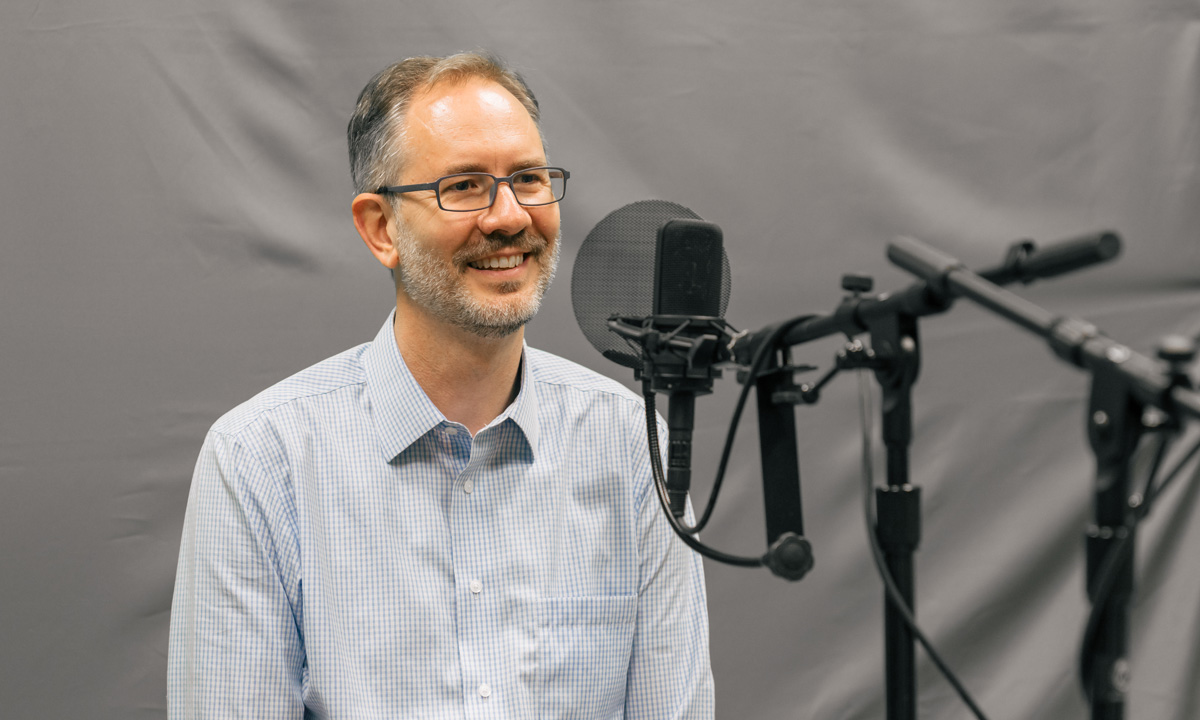
Dr. Jackson founded the LabMind podcast as a way to share a broader range of stories and topics applicable to the lab industry—topics that wouldn’t typically find a space and place at traditional medical laboratory conferences.
The culture of doctoring. Myths of the invention process. Entrepreneurship. Brian Jackson, MD, MS, explores these topics and more in the context of laboratory medicine with ARUP’s new podcast LabMind. He interviews laboratory experts from around the world who share their personal narratives and insights, providing listeners with a more multidimensional view of the challenges facing laboratories and clinicians.
Dr. Jackson is an associate professor of pathology at the University of Utah and a medical director at ARUP Laboratories. Below, he discusses this new podcast and the motivation behind it.
Why start a podcast about lab medicine?
Lab medicine is an incredibly geeky area; it sometimes seems as if you really have to be an insider to get excited about it. Yet, over the years, I’ve crossed paths with really interesting people in this space, doing intriguing work, that I thought would appeal to a larger audience—stories that would not typically be found at lab medicine conferences. I wanted a way to share these stories with my co-laboratorians around the world.
The lab community can at times be too insular, and this does not serve us well. We become a silo rather than see ourselves as part of a broader clinical, business, and scientific world. There are so many valuable ideas in other industries and sectors of healthcare that are important for us to learn from and relevant to our work.
How does your background inform your approach to interviewing?
My background is really a reflection of my love for learning. Some people like to hyper focus on a single area, while others explore a variety of areas. I’m definitely in the latter group. I was a math major in college, which is all about abstractions and mental models. Then, I headed into medical school, which was a lot of fun because there was a wealth of information to learn and wrap my brain around. Eventually, I had to pick a specialty and chose pathology because it was so broad and flexible and gave me a lot of options.
“Most of my interview subjects are from academic medicine in one form or another, but I tend to seek out the ones who push the limits. In other words, the round pegs who don’t fit into the square academic holes.”
Brian R. Jackson, MD, MS
Medical Director, Business Development, IT and Support Services
As a pathology resident, I spent most of my elective time doing informatics, and that eventually landed me in a hospital’s IT department, and from there I joined a medical software startup in Belgium. When the startup fizzled out, I came back to Utah to get a master’s degree in Medical Informatics. Eventually this brought me to ARUP, where I’ve enjoyed learning in an environment that blends business and academic medicine—a unique hybrid.
Why do you address business topics in a podcast about laboratory medicine?
Most academics I’ve met equate business with money. Essentially, it is thought of as sort of a dirty topic and intellectually shallow. I find that perspective both incorrect and unfortunate. I’ve learned over the years that business is really the science of organizational performance. There is an enormous intellectual knowledge base coming not just from business schools, but also from the leaders of successful companies. It would be wise for those of us in healthcare to learn from other industries and improve our own organizational performance.
Does academic medicine play a part, as a topic, in your podcasts? Why?
Absolutely. I have enormous respect for academic medicine; some of the smartest people in the world are academic doctors. The problem in my mind is that universities can sometimes stifle creativity with bureaucracy and a rigid culture. Most of my interview subjects are from academic medicine in one form or another, but I tend to seek out the ones who push the limits. In other words, the round pegs who don’t fit into the square academic holes.
Suggest topics: Brian.Jackson@ARUPlab.com
















